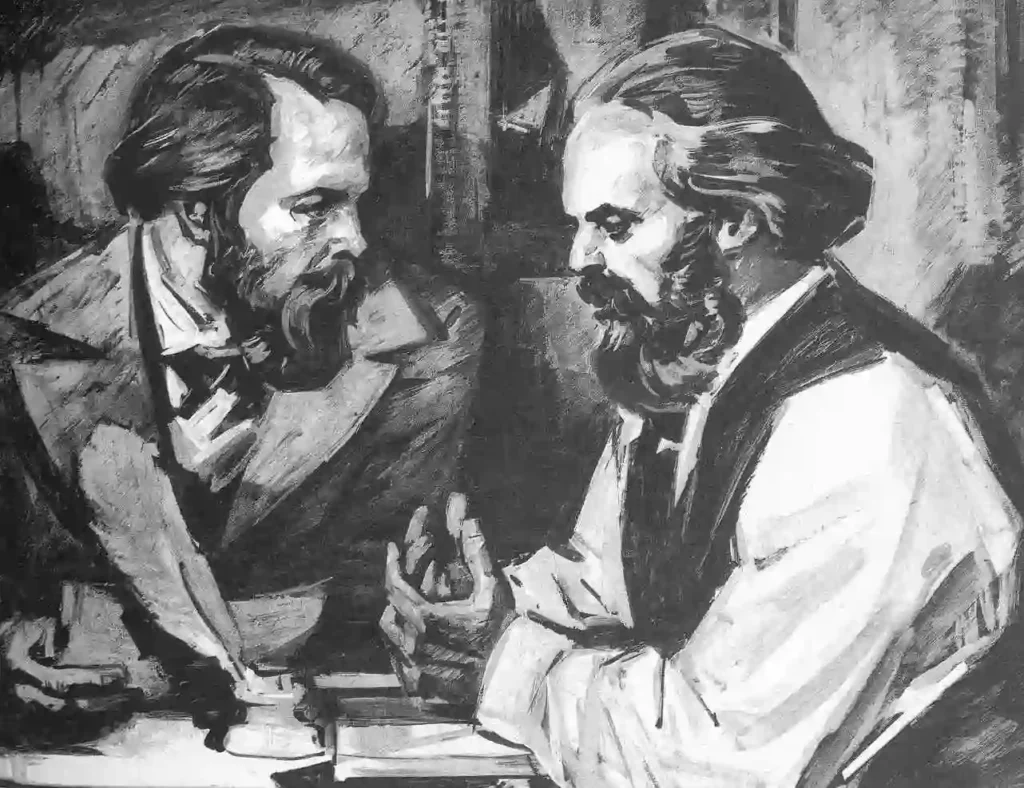Table of contents
History of Socialism
World socialism is a political and economic ideology that advocates for the collective ownership and control of the means of production and distribution of goods and services. It has a rich history that dates back to the writings of Karl Marx and Friedrich Engels in the mid-19th century, and has evolved over time to encompass a range of different theories and practices. In this article, we’ll explore the history of world socialism and its impact on modern society.
The Origins of World Socialism: Marx and Engels
The origins of world socialism can be traced back to the writings of Karl Marx and Friedrich Engels in the mid-19th century. Their seminal work, The Communist Manifesto, laid out the basic principles of socialism, including the idea that capitalism was inherently exploitative. Therefore the working class should rise up and seize control of the means of production.
Marx and Engels believed that socialism was the inevitable outcome of historical forces, and that it would ultimately lead to a classless society in which everyone had equal access to the fruits of their labor.

In the late 19th and early 20th centuries, socialism began to spread beyond its origins in Germany and other European countries. Socialists formed political parties and labor unions, and advocated for workers’ rights and social justice.
World socialism seemed possible as leftists gained traction in countries like Russia, China, and Cuba, where revolutionary movements sought to overthrow capitalist systems and establish socialist governments. Despite setbacks and challenges, socialism continues to be a powerful force in global politics and economics.
What is Socialist Movement
The rise of socialist and communist states in the 20th century was a major development in the history of socialism. Indeed the Soviet Union, led by the Communist Party, became a superpower and a rival to the United States.
Other countries, such as China, Cuba, and Vietnam, also adopted socialist or communist systems. These states faced challenges such as economic stagnation and international isolation, but they also achieved significant social and economic gains. The collapse of the Soviet Union in 1991 marked a turning point in the history of world socialism. However, socialist and communist movements continue to exist and evolve in many parts of the world.
The Decline of World Socialism in the 20th Century
The 20th century saw both the rise and decline of socialism as a political and economic system. While socialist and communist states emerged in many parts of the world, they also faced challenges and criticisms. In the Soviet Union, economic stagnation and political repression led to widespread dissatisfaction and ultimately the collapse of the state.
Other socialist states faced similar challenges, and many countries shifted towards market-based economies and democratic systems. However, socialist and communist movements continue to exist and evolve, with some advocating for a more democratic and decentralised form of socialism.
The Resurgence of World Socialism in the 21st Century
In recent years, there has been a resurgence of interest in socialism, particularly among younger generations. This can be attributed to a variety of factors, including growing income inequality, dissatisfaction with traditional political parties, and the rise of social media and online organising.
Socialist Countries
Some countries, such as Venezuela and Bolivia, have also seen the election of socialist leaders in the 21st century. However, the resurgence of socialism has also faced criticism and challenges, particularly in the United States where it is often portrayed as a threat to individual freedoms and capitalism.

